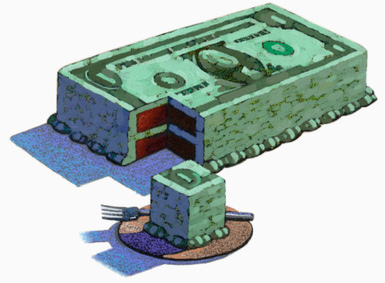Which State Should I Organize in?
Generally speaking, you can organize under the laws of any state in the U.S., but you must keep an office address there. Each state has a different filing fee ($25-500) procedure, and requirements. Although most new businesses opt to organize in their home state, certain states like Delaware and Nevada, standout as popular choices, as they offer certain benefits that may make it more attractive than your home state. You may also be required to register as a foreign entity in any state you transact business in. Below you can find a comparison of some of the more popular choices and a discussion of important considerations based on the Tax Foundation’s 2014 Tax Climate Index.
The Index offers a glimpse into the best tax climates across the United States as of the 2014 fiscal year. States are ranked overall based on their corporate, sales, individual income, property, and unemployment insurance tax rates, all of which are important for a thriving and competitive business environment. Higher rankings imply a greater likelihood of economic growth, a healthier economy, higher job creation and retention rates, lower supply costs, and increased confidence for your investors.
Because each business has its own unique needs, you may find it valuable to browse the individual rankings in the index with your particular business needs in mind. Alternatively, see below for the highlights.
Overall the best tax climates for 2014, based on a comparison of all tax levies, are:
- Wyoming
- South Dakota
- Nevada
- Alaska
- Florida
- Washington
- Montana
- New Hampshire
- Utah
- Indiana
And the worst…
- Maryland
- Connecticut
- Wisconsin
- North Carolina
- Vermont
- Rhode Island
- Minnesota
- California
- New Jersey
- New York
If you’re forming a corporation and your primary concern is tax, there are three states that do not impose a corporate income tax: Nevada, South Dakota, and Wyoming, which all tie for first place in the corporate tax rakings. Following in line are: Hawaii, Utah, Virginia, Missouri, Georgia, Michigan, and South Carolina.
The worst states for corporate income tax rates are: New Jersey, Vermont, Rhode Island, Minnesota, Maine, Pennsylvania, Illinois, New Hampshire, Iowa, Delaware.
“Why do so many people choose to incorporate in Delaware if the corporate tax rates are so unattractive?”
The Division of Corporations of the state of Delaware boasts more than half a million business entities calling the state home, but why?
More than 50% of all U.S. publicly traded companies and 60% of the Fortune 500 call Delaware home due to its advanced and flexible corporate laws, a highly respected Court of Chancery, and a business-friendly State Government with the most experience in Corporate governance in the United States.
In Delaware’s Court of Chancery a judge hears and determines all disputes—there are no juries. Juries are wildcards, and as a business owner you should know that it’s preferable to have a very experienced, well-trained expert deciding the merits of a case than a jury of your peers. Moreover, this means that for every case the Court has handled, there is a judicial opinion and thus a precedent set, which gives litigants much more certainty in pursuing their claims, leaving less room for costly litigation and debate. Lastly, Delaware provides for a level of anonymity from the public, as it doesn’t require disclosure of director or officer names in the Articles of Incorporation. And again, if engaging venture capitalists is in your future, you may have to incorporate in Delaware, and for the reasons it may be a good idea anyways.
If you have any questions about your home state or otherwise, feel free to contact our offices. You’re welcome to continue to browse the content and blog entries in our Business and Intellectual Property divisions for more information.
Recommended: “Formation Costs and Minimum Franchise Taxes – State by State”





